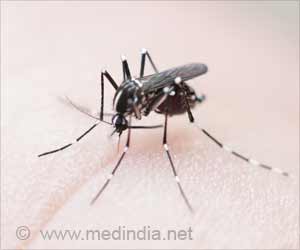A gene called 'Nix' helps researchers harness mosquito sex in the fight against infectious diseases such as dengue and chikungunya.

Researchers have now identified a gene that is responsible for sex determination in mosquitoes and that can transmit yellow fever, dengue and chikungunya viruses.
"The gene called ’Nix’ provides us with exciting opportunities to harness mosquito sex in the fight against infectious diseases because maleness is the ultimate disease-refractory trait," said Zhijian Jake Tu, professor of biochemistry at the Virginia Polytechnic Institute and State University (Virginia Tech).
The scientists injected "Nix" into mosquito embryos and found more than two-thirds of the female mosquitoes developed male genitals and testes.
When they removed "Nix" using a genome-editing method, male mosquitoes developed female genitals.
"We are not there yet but the ultimate goal is to be able to establish transgenic lines that express Nix in genetic females to convert them to harmless males," said Zach Adelman, associate professor of entomology and co-author.
Advertisement
"Targeted reduction of Aedes aegypti populations in areas where they are non-native could have little environmental impact, and drastically improve human health," noted Brantley Hall, co-first author on the paper.
Advertisement
Source-IANS







